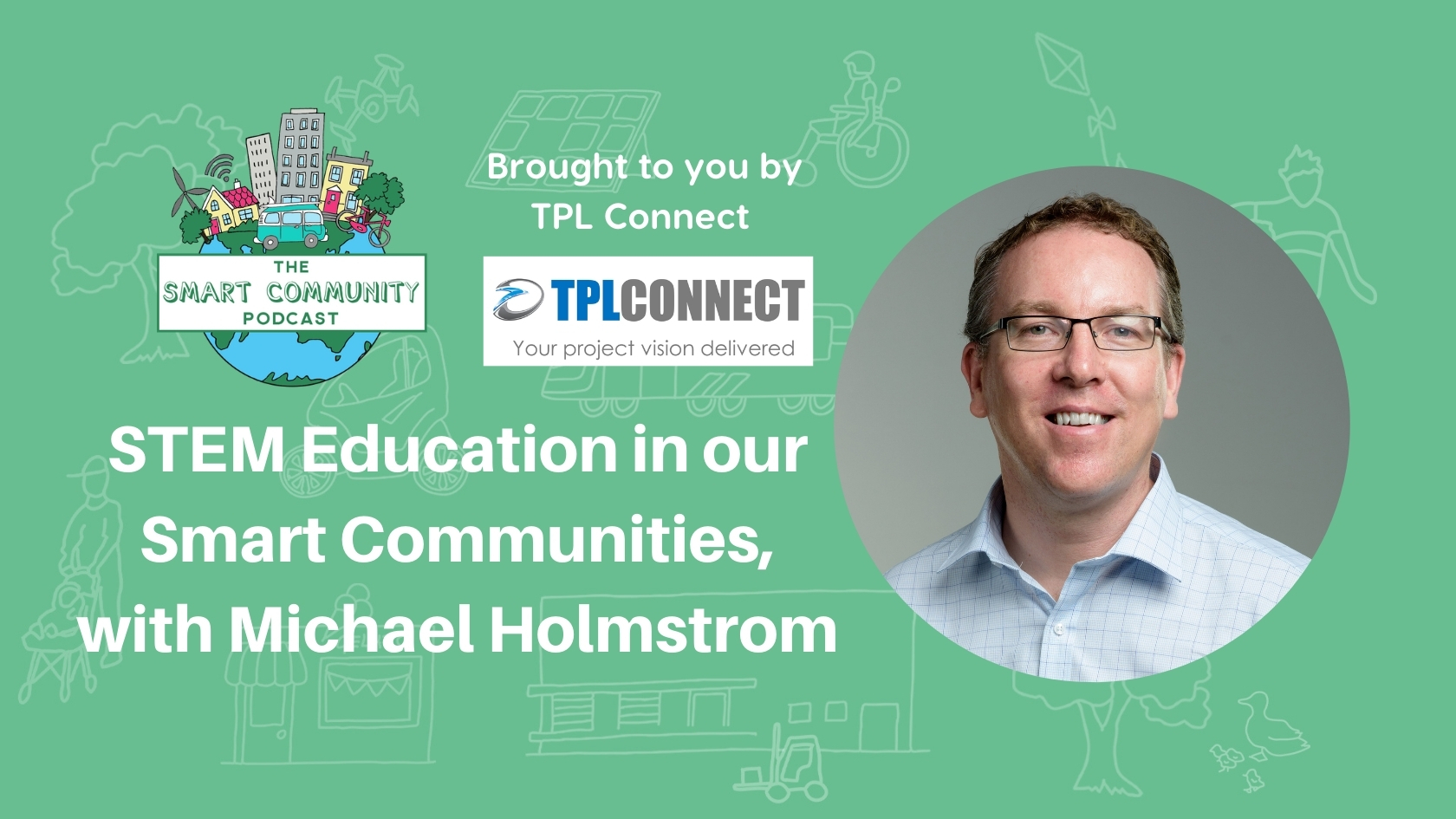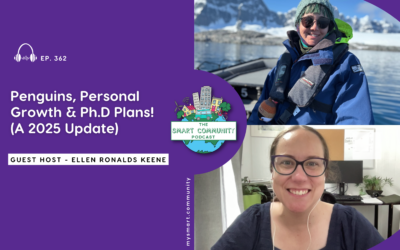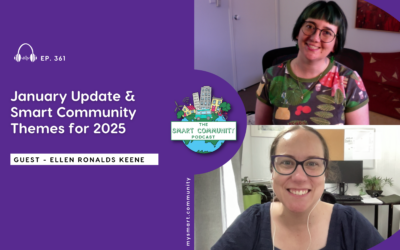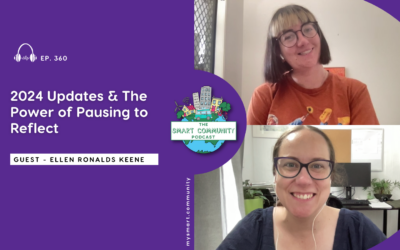In this episode of the Smart Community Podcast, I have a great chat with Michael Holstrom, the CEO of STEM Punks (and that’s STEM as in Science, Technology, Engineering, Maths.) STEM Punks provides immersive STEM programs for students and teachers from grade 1 to 12 and through their programs, enables creative and entrepreneurial thinking to inspire tomorrow’s innovators. In this episode Michael and I discuss his background as an engineer and in technology commercialisation and startup development, as well as what sparked his interest in the Smart Community concept. Michael then explains how STEM Punks came to be and why the real world application of STEM skills is so important, not just learning to code in isolation. We share our thoughts on buzzwords and acronyms, like STEAM, but why STEM is the foundation. Michael tells us what STEM punks does in both the education and home market and how they’ve shifted this year with COVID accelerating their shift to online delivery. We discuss technology as an enabler for humans, the importance of lifelong learning and the mindset shifts we need in order to think more holistically and change the narrative of what STEM is. We finish our chat discussing the emerging trend of AI and the ethical and philosophical conversations that are needed now that the technology is here, as well as Michael’s favourite resources. As always we hope you enjoyed listening to this episode as much as we enjoyed making it!
Listen here:
What we cover in this episode:
- Michael’s background in engineering, technology commercialisation, startup development
- What sparked Michael’s interest in STEM education and Smart concepts
- What a Smart Community is to Michael and why we should be creating spaces we want to be in
- How Stem Punks came to be
- Why the real world application of STEM skills is so important, not just coding skills in isolation
- Thoughts on STEAM and other buzzword acronyms, but why STEM is the foundation
- What STEM Punks does in both the education and home market
- Why Michael surrounds himself with people with the skills he didn’t have
- How they’ve shifted this year with COVID accelerating their shift to online delivery
- Technology for good and as an enabler for humans to be in the centre of liveable communities
- The importance of lifelong learning and the mindset shifts we need in order to think more holistically
- Why Michael thinks we must change the narrative of what STEM is
- The power of diversity in any innovation
- The emerging trend of AI, AVs and machine learning
- The ethical and philosophical conversations that are needed now that the technology is here
- Resources that Michael has to share, including Stem Punks’ Future Learning Magazine
Quotes:
“It’s about trying to take real world problems, problems of the future, and then apply STEM skills for kids and adults to solve those problems. So Smart Communities, Smart Cities to me, there’s a growing need to start looking at how we build our cities, how we live our lives, I think COVID-19 has put a big spotlight onto how we actually do live our lives, especially in the biggest cities.”
“I don’t believe that people are happy in concrete blocks of, you know, a square meter here and there. I think we need to build spaces that make people happy. And actually [allow] people get back to what they love. And I think a lot of that has to do with solving transportation issues, solving overpopulation, and also getting access to a lot better ways of producing food in a much more sustainable way.”
“There was no lack of ideas, there was a lack of a skill set to take those ideas to transform into value for people. So based on that, I said, ‘Look, I need to teach kids and adults how to do this, not just become innovative, but how to use their skills in STEM and entrepreneurial thinking to really transform ideas into value.’”
“What STEM Punks is there to do is to enable that mindset, to enable tomorrow’s innovators to inspire kids to take a pathway into STEM, because if you look at the problems that we’re currently facing as a human species, a lot of those problems [will have] to be solved through STEM related skills. So that’s the foundation of what we do.”
“I’m an engineer. I’m starting an education business and I’m not an educator. Now I’ve learned how to become an educator. But the first thing I did was to employ the best possible educators around because in the end, education and being a teacher, it’s a trade, it’s absolutely a skill you get taught how to do, how to manage a class and most importantly, how do you create content that delivers really rich learning outcomes. The short answer is that as a business person, always think about what you’re really good at. But even more importantly, look at what you’re not good at. So in my case, I surround myself with extremely passionate people [who] all have an education background.
“It comes back to our mission which has always been to inspire tomorrow’s innovators, but doing that in a way that everyone can access our content. So what online does for us is that we can now still apply our teachers’ skills being really good educators, but doing that for the masses in a very rich way. Online is a big pathway for us.”
“There’s always two sides to that you can always use technology for good or for bad, but I think what technology to me will do, and I’m very excited about this, I think you will actually allow human beings to be what they always should have been, which is basically focusing on what they want to do as people.”
“It happened back in the day when cars took away the work from the horse industry. Everyone in the horse industry was really up in arms, because [in their view] cars were going to kill the world, everything was going to be bad. And in the end, that never happened. We created new jobs, new industries to flourish around that. And in the end, I think that probably was a better way of doing things.”
“I do think that STEM is a fundamental skill set, going forward it is critical, because a lot of the issues that we are facing relies on those skills to build a society of the future that allows other things to flourish even more.”
“I think there’s a lot of opportunity with artificial intelligence. But I think at the same time, there’s a big education piece for people to understand what it is and how it can be applied.”
“If you look at innovation as a whole, diversity gets tossed around as a word we feel like we have to include, but diversity is key in any innovation process. I mean, projects I’ve been involved with, anything from building multi million dollar companies to even small ideas coming into fruition, it all comes back to having different kinds of input.”
“It’s easy to get deep in technology, but I think it is more interesting getting deep into the philosophy and the human factors behind how technology can be used.”
Links:
Connect:
Find the full show notes at: www.mysmart.community
Connect with Michael via LinkedIn or at stempunks.com.au
Connect with me via email: hello@mysmart.community
Connect with My Smart Community via LinkedIn or Twitter and watch on YouTube
The Smart Community Podcast is produced by Perk Digital.






0 Comments